Wrapping up thoughts on a drama as nuanced and emotionally resonant as My Unfamiliar Family feels like a task that demands extra care. It’s the kind of series that lingers in your mind, prompting reflection on its characters and their intricate relationships long after the credits roll. This review aims to capture the essence of this compelling K-drama, exploring why it deserves a prominent place in the realm of family-centric storytelling. My Unfamiliar Family isn’t just another drama; it’s a thoughtful exploration of the bonds that tie us together, even as life throws unexpected curveballs.
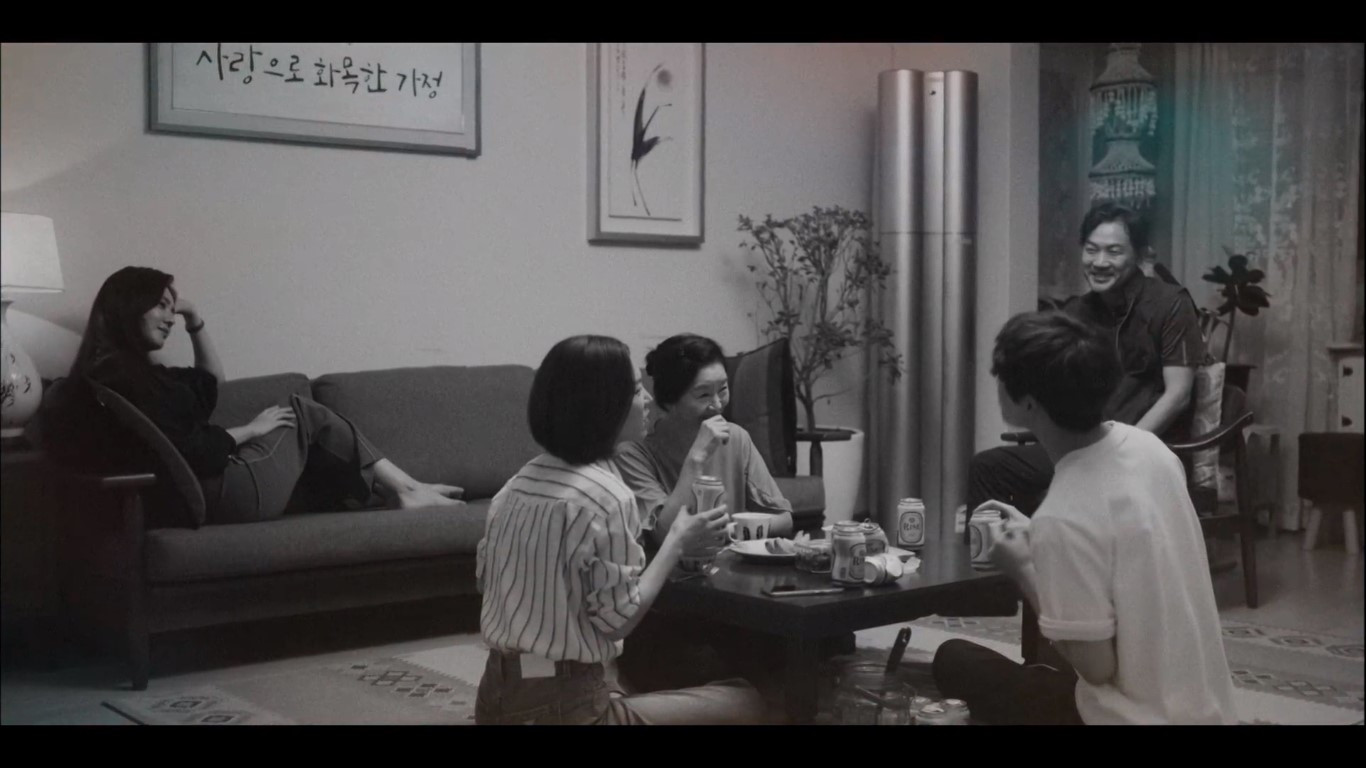 Scene from My Unfamiliar Family depicting the emotional turmoil surrounding the father's illness.
Scene from My Unfamiliar Family depicting the emotional turmoil surrounding the father's illness.
The Rollercoaster of Plot Twists and Emotional Depth
The drama ventures into serious territory with the father’s health crisis, revealing a brain tumor as the cause of his memory loss. This discovery, while medically questionable given earlier scans, sets off a chain of emotionally charged moments. The father’s contemplation of rekindling his love with his wife, their shared regrets over lost time, and the mother’s bittersweet reflections on “what could have been” create a poignant atmosphere. The cliffhanger of his flatlining post-surgery initially suggests a somber turn, but thankfully, these moments prove to be dramatic feints. However, the introduction of this medical emergency, while adding tension, feels somewhat extraneous. The narrative impact of the tumor storyline is minimal, and the lack of follow-through, such as the biopsy results, leaves it feeling like a plot device introduced solely for heightened drama rather than meaningful character development or thematic exploration. This screen time might have been better allocated to enriching Ji-woo’s narrative arc, which felt comparatively underdeveloped.
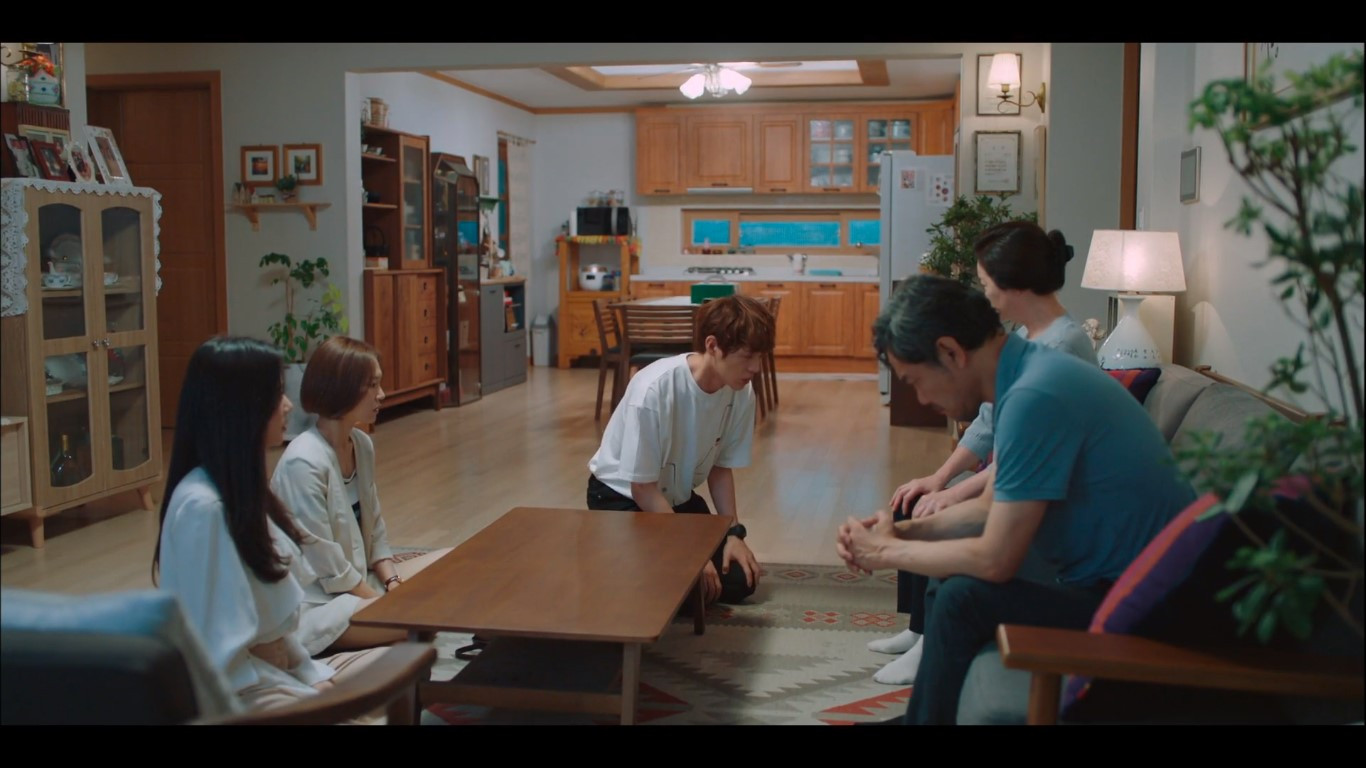 Ji-woo in My Unfamiliar Family, portraying his character's quiet struggles and eventual family conflict.
Ji-woo in My Unfamiliar Family, portraying his character's quiet struggles and eventual family conflict.
Ji-woo’s Underdeveloped Arc and Mom’s Heartfelt Question
Anticipation built for Ji-woo’s personal crisis, expecting a significant and impactful event mirroring the family’s existing turmoil. However, his storyline, when it arrives, feels surprisingly muted. His involvement in a rather simplistic scam, while serious, is resolved swiftly, occupying only half an episode. This brevity contrasts sharply with the extensive screen time dedicated to the other family members’ struggles. Despite its short duration, Ji-woo’s predicament becomes the catalyst for a powerful moment of family reckoning. Having always been portrayed as the gentle and dependable son, Ji-woo’s sudden plan to leave without a word is particularly jarring. This unexpected move culminates in the mother’s raw and heartbreaking question: “What is family to you guys? I ask because I really don’t know. Do you not know either? Or… have you never thought about it?” This question hangs heavy in the air, a central query of My Unfamiliar Family, yet it remains largely unanswered within the immediate family dynamic. This scene marks the peak of family conflict, charged with unspoken tension and the mother’s palpable hurt. The subsequent handling of this emotional outburst feels somewhat dismissive. While the youngest son seeks forgiveness, the sisters’ reactions are casual, almost mocking. The narrative acknowledges the oversight, with Eun-hee’s later narration noting the issue shouldn’t have been ignored. Yet, the family never truly revisits this pivotal moment, even as it propels the mother to embark on a year-long solo journey of self-discovery, leaving her family behind.
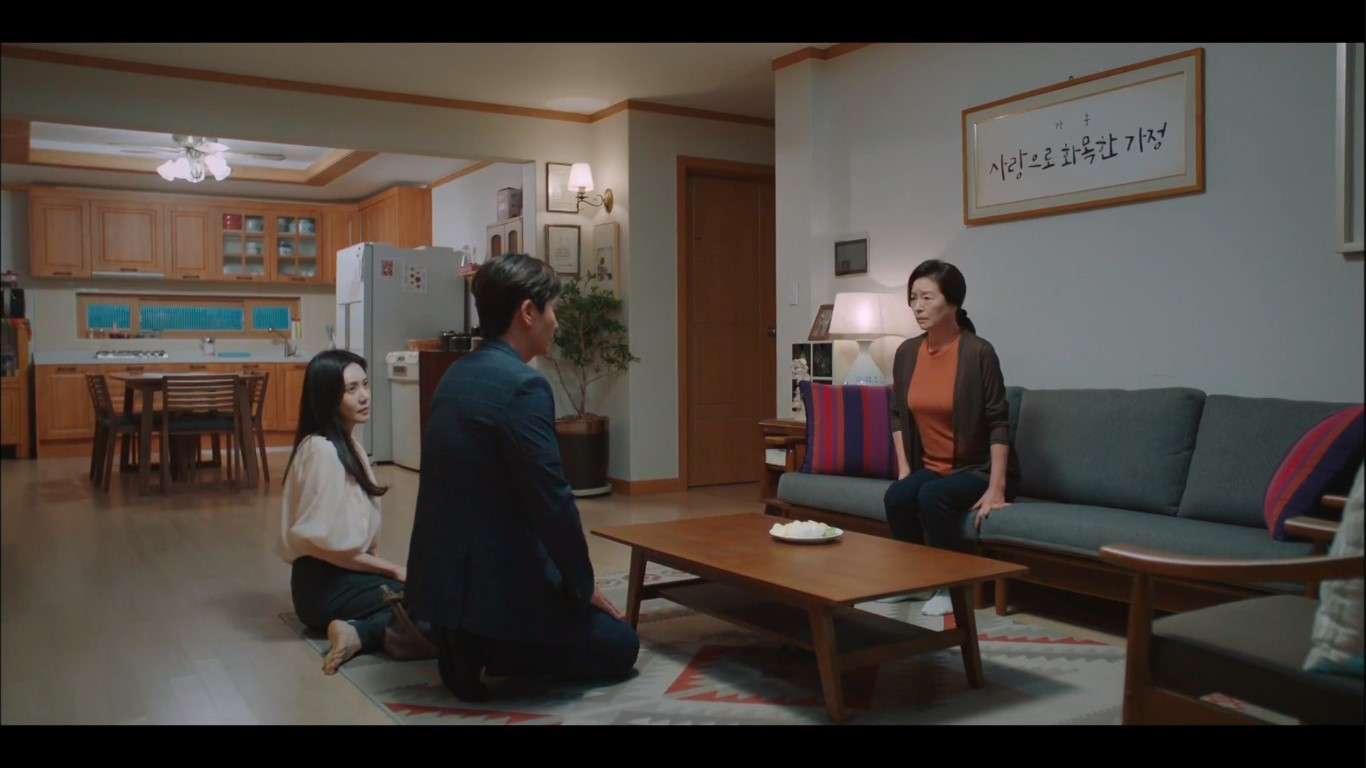 Eun-hee and Chan-hyuk in My Unfamiliar Family, showcasing their evolving relationship from friends to lovers.
Eun-hee and Chan-hyuk in My Unfamiliar Family, showcasing their evolving relationship from friends to lovers.
Chan-hyuk’s Secret, Eun-hee’s Past, and Budding Romance
Another anticipated revelation revolved around Chan-hyuk’s secret – his unlicensed driving status, known from the beginning. Initially seeming like a minor quirk, the reason behind it, a childhood trauma, adds depth to his character. His vulnerability in sharing this with Eun-hee marks a significant shift in their dynamic. This confession, one of the rare instances where Chan-hyuk discusses his personal life, balances their friendship. More importantly, it serves as the pivotal moment for Chan-hyuk to overcome his hesitations and express his romantic feelings for Eun-hee. This development is handled with a charming blend of casualness and directness, effectively propelling their relationship forward. Post-confession, Chan-hyuk’s personality blossoms, revealing a playful and “derpy” side, adding a delightful layer to his character. Despite Eun-hee’s initial concerns about their friendship becoming awkward, their transition from friends to lovers feels organic and mature. Their long-standing friendship doesn’t negate the fresh excitement of a new romance. They navigate their budding relationship with patience and understanding, allowing for the sweet awkwardness and butterflies of early love to flourish. Eun-hee’s past affair with Gun-joo is another significant thread. Despite the emotional fallout, they achieve closure, parting amicably after addressing the sudden week-long disappearance. Gun-joo’s time away was spent resolving his previous relationship, with Ha-ra’s interference stemming from spite. Eun-hee’s decision to end things with Gun-joo, even if she doubted Ha-ra’s claims, suggests a recognition of the relationship’s flawed foundation and poor timing. Ultimately, this breakup paves the way for Chan-hyuk and Eun-hee’s relationship, a positive outcome in the intricate relationship web of My Unfamiliar Family.
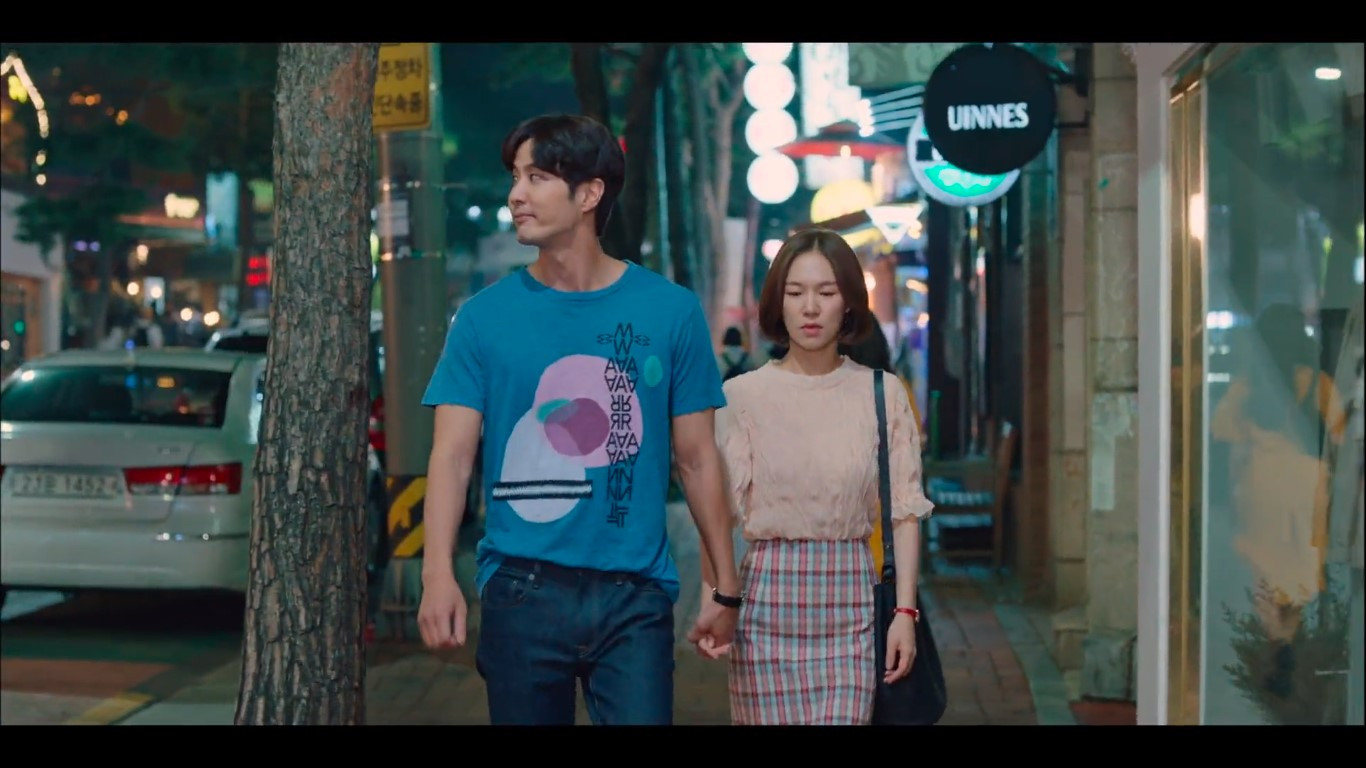 A family gathering in My Unfamiliar Family, illustrating the drama's theme of reconciliation and togetherness.
A family gathering in My Unfamiliar Family, illustrating the drama's theme of reconciliation and togetherness.
Resolutions, Forgiveness, and a Satisfyingly Happy Ending
The beauty of My Unfamiliar Family lies in its ability to navigate complex conflicts and deliver satisfying resolutions without resorting to dramatic extremes. Despite the intensity of family disagreements, bridges are never burned. The parents reconcile, deciding to cherish their remaining years together. The mother’s thoughtful gesture of buying gifts for Young-shik, his son, and Ji-woo’s boss exemplifies her forgiving nature. Ji-woo moves past his unfortunate first love, finding a connection with Seo-young. Eun-hee maintains positive relationships with both Gun-joo and a formerly antagonistic colleague, and her relationship with Chan-hyuk blossoms into a committed romance, culminating in a symbolic kiss at their familiar meeting spot. Eun-joo’s journey is particularly arduous, marked by divorce, alimony negotiations, confronting her biological father, and even a surprisingly amicable final interaction with her mother-in-law. Her survival through these challenges, emerging intact, is a testament to her resilience. The introduction of Yoo Min-woo, played by Kwon Yool, in the later episodes initially seems rushed. However, Chan-hyuk’s earlier advice to Eun-joo about reconnecting with old friends provides context. Min-woo, an old acquaintance from her training days and Eun-hee’s alter ego, injects much-needed vibrancy into Eun-joo’s subdued life. His upbeat and persistent nature, unfazed by her reserved demeanor, appears to be a perfect complement to her personality. His warm and welcoming family offers Eun-joo the acceptance she lacked in her previous marriage, providing a hopeful outlook for her future. The romantic pairing of Ji-woo and Seo-young feels somewhat underdeveloped. Given their prior attachments throughout the series, their sudden coupling after a time jump seems somewhat abrupt. A more gradual build-up for this relationship would have enhanced its believability and emotional resonance. Overall, the series could have benefited from dedicating more attention to Ji-woo’s character development and romantic arc.
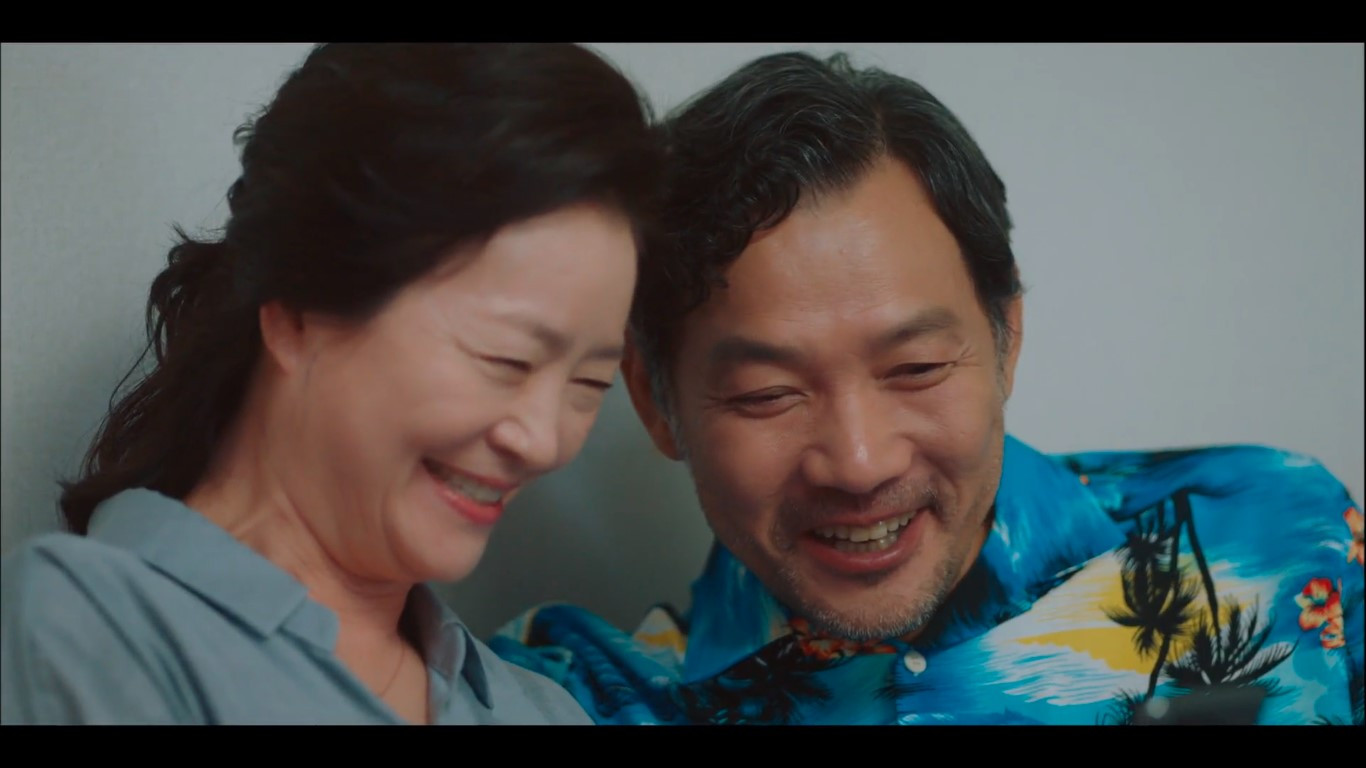 A poignant scene from My Unfamiliar Family, capturing the emotional depth and character-driven narrative of the series.
A poignant scene from My Unfamiliar Family, capturing the emotional depth and character-driven narrative of the series.
Beyond Makjang: Relatability and Emotional Reward
Despite minor shortcomings, My Unfamiliar Family is a deeply immersive and captivating drama. From the outset, it hooks the viewer and maintains its grip until the finale. Each extended episode, exceeding 70 minutes, is packed with compelling content, even when plot points occasionally verge on melodrama. The strength lies in the compelling character development and relatable portrayal of human emotions. Investment in each character’s struggles and aspirations is easily achieved, evoking a strong emotional response, often leading to tears even in scenes of familial warmth. Despite initial reservations about potential outcomes, the drama culminates in a genuinely satisfying and earned happy ending. This isn’t a fairytale ending but one forged through conflict, tears, honest confrontations, heartfelt conversations, and eventual forgiveness. The Kim family, far from perfect, makes mistakes and exhibits selfishness, yet their journey underscores the critical importance of open communication, appreciating family bonds, and actively nurturing a comfortable and supportive home environment. My Unfamiliar Family transcends typical slice-of-life family dramas with its heightened plot points, yet it grounds itself in relatable characters and authentic emotional responses. The ability to empathize with diverse perspectives is a hallmark of the show. The richly detailed and lived-in world of My Unfamiliar Family fosters a deep connection with its characters, flaws and all, leaving a longing for more than just 16 episodes. While not without minor criticisms, the drama is a gem, characterized by tight writing, stellar performances, skillful direction, and a poignant score, all driving a character-centric narrative that resonates deeply. It may not offer simplistic healing, but My Unfamiliar Family is profoundly emotionally rewarding, prompting reflection on the complexities of family and human connection.
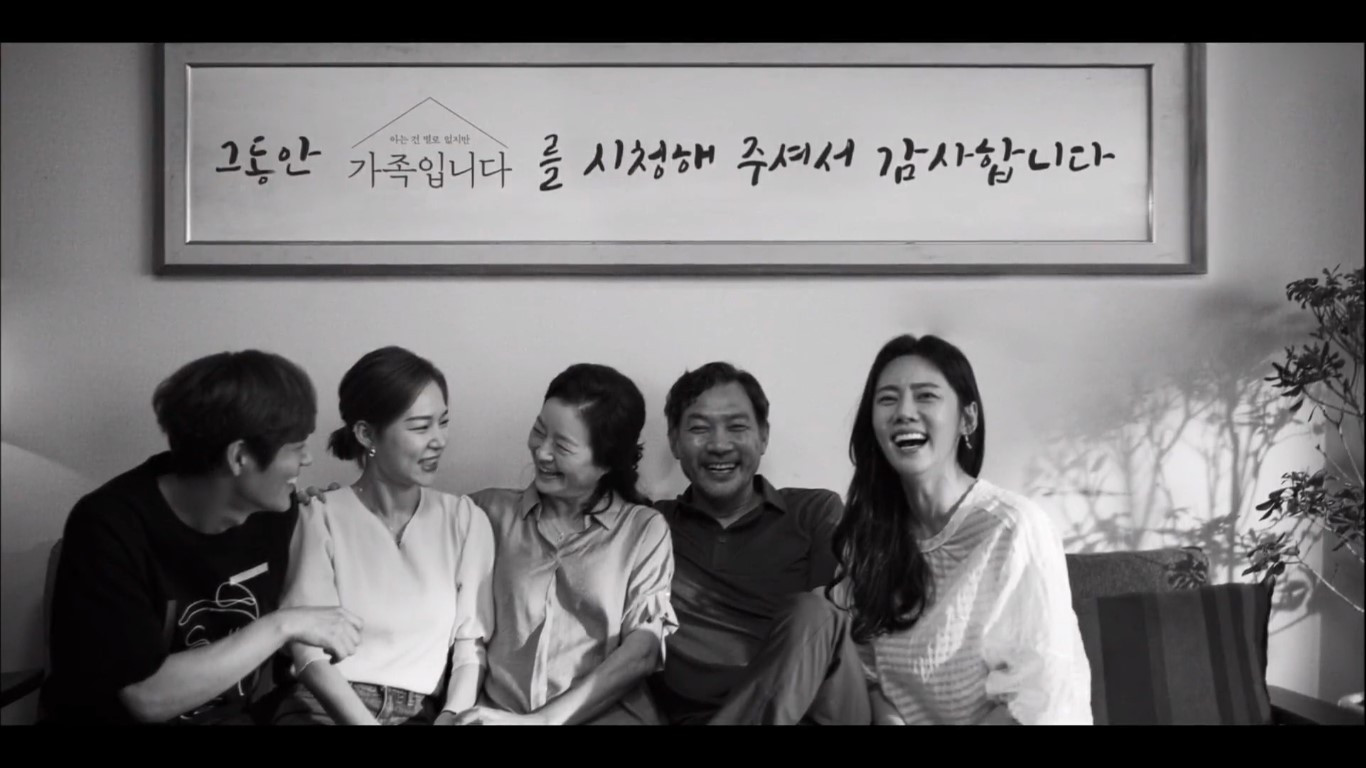 The cast of My Unfamiliar Family, celebrating the drama's successful portrayal of complex family relationships.
The cast of My Unfamiliar Family, celebrating the drama's successful portrayal of complex family relationships.
“As complicated as I am, and we are, we have family.”
_ Rating: 5/5 Director: Kwon Young-il Screenwriter: Kim Eun-jung Production: tvN, 2020 Cast: Jung Jin-young, Won Mi-kyung, Choo Ja-hyun, Han Ye-ri, Shin Jae-ha, Kim Ji-suk, Kim Tae-hoon, Hyejeong, Shin Dong-wook, Lee Ji-ha, Lee Jong-won, Park Sang-myun, Kwon Yool Genre: Family, Melodrama, K-drama (16 Episodes)
Like Loading…

